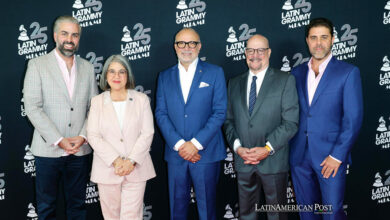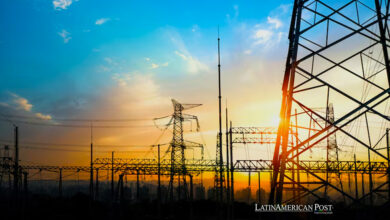Colombia: Will Duque be able to bring peace to the country?
Among the challenges of the new Colombian president, the continuity of the peace talks is a priority. The ELN is willing to continue negotiating the end of the armed conflict

The government of Juan Manuel Santos culminated and the peace dialogues with the Ejército de Liberación Nacional (ELN) did not reach a final ceasefire. Although, the immediate objective was to achieve a temporary ceasefire, this did not happen either. Now, the new government must decide whether to continue or not with the peace talks. The new president of Colombia, Iván Duque, said in campaign that to continue the dialogues the ELN should concentrate and cease with all hostilities.
Leer en español: Colombia: ¿Duque logrará un país en paz?
Last week, former Foreign Minister María Ángela Holguín visited Havana where the negotiations are taking place. Holguín met with Cuban Foreign Minister Bruno Rodríguez to discuss the progress of the peace process, which led to the speculation that the temporary ceasefire had been achieved. However, in the press conference after this negotiation cycle, the negotiating heads of both parties said that the expected point had not been reached, but that the dialogues were sufficiently advanced and that the new government would have to decide its future.
Peace negotiations remain unresolved
The cycle of conversations that culminated was cycle number six. For the head of the citizen participation work team Aureliano Carbonell, it was possible to organize the inclusion of civil society in the negotiations. This implies a major change to a demand that did not occur in the negotiations with the FARC. This component aims to involve women, entrepreneurs, farmers, ethnic groups and sectors such as the miner, the energy and the environment to give strength to the agreement if it occurs, explained Carbonell to the Escambray newspaper.
For the ELN’s chief negotiator Pablo Beltrán, what has been achieved in the previous six negotiation cycles is a strong base for the new government to analyze progress and continuity to the process. The ELN at the press conference expressed its willingness to maintain dialogue with the new government. However, so far, the new president Iván Duque has not made any pronouncement on the matter.
Both the chief negotiator on behalf of the government, Gustavo Bell, and the United Nations, agree that the new president is the one who must decide on the continuation of the dialogues. Bell, who will probably leave the negotiating team, said at the press conference that President Ivan Duque should remember that according to the constitution "peace is a right and a constitutional duty", emphasizing that the new president must think as leader of the nation.
You can also read: On Ernesto Macías's speech: Fighting the President of Colombia's Congress hatred with figures
The new president has the last word
The analyst Alejo Vargas in an interview with Radio Nacional de Colombia said that, although the desire was to obtain a ceasefire, "it is necessary that President Iván Duque say whether or not he agrees with what is being negotiated, and if changes are made they need to be made before implementing an agreement." Vargas alludes to what was promised in the campaign by Duque, who assured that, if he were to become president, he would make modifications to the agreement with the FARC.
For Carlos Velandia, peacemaker, it is important that President Duque consider the clamor of regions such as Chocó, Catatumbo, among others, to decide in the face of peace talks. Velandia declared that the president who just began his mandate on August 7 "must gather the ideas that have been worked on, evaluate what can be improved, otherwise it would be to step back and intensify the violence."
For the heads of the ELN, the negotiations were between two governments that think differently. Pablo Beltrán in a video said that "it is a sign of threat to the negotiations if it does not recognize what has been achieved." For Beltrán, situations such as a peace dialogue must be state policies that the new government can modify if it considers it, but without leaving aside the ultimate objective: peace.
Beltrán affirmed that the negotiations have had ups and downs, such as the withdrawal of Ecuador as guarantor of the negotiations or the criticisms made to the cessation of hostilities in December. But the disposition to get out of the conflict in a negotiated manner remain in force. Now the new president’s task is to follow the recommendations of his advisors and decide if he wants to continue the process. However, it must be taken IGNORE INTO account that, for the UN and the negotiating team of the outgoing government, Duque must decide on continuity.
LatinAmerican Post | Carlos Eduardo Gómez Avella
Translated from "Colombia: ¿Duque logrará un país en paz?"





